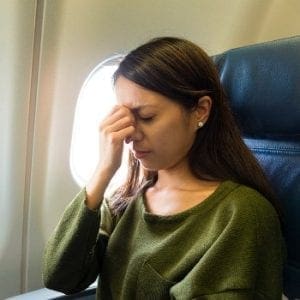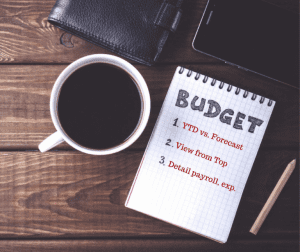 Differences in airline passengers’ profiles account for some of the differences in their levels of tolerance toward other passengers’ unruly behaviour, according to a recent study. Mr Steven Tsang, Dr Lorenzo Masiero and Dr Markus Schuckert of the School of Hotel and Tourism Management (SHTM) at The Hong Kong Polytechnic University asked travellers to assess how acceptable they considered different types of anti-social behaviour, and then investigated whether the level of acceptability differed among travellers of different types and cultural background. The findings provide helpful information that airlines can use to minimise the effects of unruly behaviour on other passengers.
Differences in airline passengers’ profiles account for some of the differences in their levels of tolerance toward other passengers’ unruly behaviour, according to a recent study. Mr Steven Tsang, Dr Lorenzo Masiero and Dr Markus Schuckert of the School of Hotel and Tourism Management (SHTM) at The Hong Kong Polytechnic University asked travellers to assess how acceptable they considered different types of anti-social behaviour, and then investigated whether the level of acceptability differed among travellers of different types and cultural background. The findings provide helpful information that airlines can use to minimise the effects of unruly behaviour on other passengers.
Travelling by air was once regarded as an exclusive service available only to a select few. Yet the researchers point out that by 2016 there were more than 3.6 billion passengers annually. At the same time, unfortunately, it seems there are almost daily reports of “disruptive and unruly passenger behaviour” that contradict the “exclusive and comfortable image that airlines wish to project”.
Of course, air travel has long been associated with stress, anxiety and fear of flying, and such feelings can lead to antisocial and aggressive behaviour. Yet in an attempt to maximise their profits, the researchers note, airlines have introduced larger planes that offer smaller, cramped seats with no personal space, leading to “increasing crowdedness, stress, and discomfort”. The environment onboard is often stressful and reactions include claustrophobia, anxiety, fear and a sense of loss of control, as well as frustrations due, for instance, to boredom and dissatisfaction with the service.
Perhaps it should be no great surprise, then, that flight crews regularly need to deal with stressed travellers who start arguments and fights with crew members and other passengers. The researchers suggest that a key factor in such incidents is intoxication. Alcohol is often freely available in airports and onboard aircraft, yet its effects can be exacerbated by changes in oxygen at altitude, causing passengers to experience “irritability, tension and tiredness”. The ban on smoking on airlines can also cause additional stress for some people, although this is becoming less of a problem than in the past.
Airlines recognise that these overarching problems put many people at risk and make efforts to address them, but the researchers were more specifically interested in exploring other passengers’ responses to unruly behaviour. In particular, they sought to identify the level of acceptability of various types of behaviour, and whether this level differed among passengers with different cultural backgrounds, travel motivations and travel experience.
With the aim of gaining responses to statements about unruly passenger behaviour ranging from getting drunk and becoming aggressive, using foul language, kicking the seat in front and monopolising the cabin crew to occupying the shared armrest for the whole journey, the researchers interviewed passengers near the entrance of the Hong Kong International Airport. They also set out to gain answers from roughly half Asian and half non-Asian passengers to “ensure a balanced representation of different cultural backgrounds”.
Of the 298 passengers surveyed, there were slightly more males (60%) and about 40% were aged over 36 and held a secondary education. The majority travelled four to six times a year. Of the most recent flights, 46% were for leisure and 43% were for business purposes, and 27% flew business or first class. Most of the passengers had flown short or medium distances, and only 11% had flown more than 7 hours.
The passengers were in general agreement about the unacceptability of several forms of behaviour, including alcohol abuse, vandalism, the use of foul language and kicking the seat in front. Becoming drunk and aggressive was the least acceptable behaviour, whereas using the overhead reading light was the most tolerated. Being impolite to cabin crew when requesting service was quite well tolerated, whereas yelling at the cabin crew was considered highly unacceptable.
When further investigating the patterns of passenger responses, the researchers found that they fell into three broad dimensions, related to personal space, disruption and aggressive acts. Yet their individual profiles determined just how sensitive they were in those areas.
For instance, passengers with higher levels of education, who travelled in business or first class or who flew long distance considered violations of personal space less acceptable than those without these characteristics. Conversely, travellers with Asian cultural backgrounds were more willing to “accept the manifestation of unruly behaviours related to personal space” than non-Asian travellers. Overall, those who were travelling for business or leisure (rather than to visit friends and family) and those with high levels of education were the least tolerant of this type of behaviour.
Behaviour that disrupted service, such as occupying the cabin crew for a long time so that other passengers had to wait, was considered equally unacceptable among the majority of travellers. Leisure and business travellers seemed to have been less disturbed by service disruptions than those who were travelling to visit family and friends, the researchers note, while Asian travellers were again more tolerant than non-Asians.
Interestingly, those passengers who indicated that they “would consider flying with other airlines to avoid unruly behaviour” were less tolerant of behaviour that affected in-flight service. The researchers interpret this to mean that “flight attendants are considered responsible”, along with the airlines’ poor training programmes, for behaviour that disrupts service delivery.
There was little variation in the unacceptability of aggressive behaviour among travellers with different profiles. Cultural background, for instance, had no effect on perceptions of such behaviour. Those flying business or first class were least likely to find aggressive behaviour acceptable, whereas older passengers and frequent flyers were the most tolerant.
The researchers identify a number of measures that airlines could implement to reduce the likelihood of unruly passenger behaviour and lessen the effects on other travellers. In terms of hardware, they recommend the use of more “shock-resistant seats offering more space and individuality” and with a limited recline angle. They acknowledge that it is tricky to solve the problem of the shared armrest, but note that this is exacerbated by the move towards smaller seats.
In terms of what the researchers call “software and service design”, airlines could be more aware of allocating seats to better accommodate passengers’ needs and backgrounds, which could lead to “higher levels of relaxation” and reduce the pressure on flight attendants. Airlines could also promote the additional comfort and personal space available in business and first-class, and perhaps offer “dedicated seating arrangements” to frequent flyers and business travellers.
Finally, providing “passenger information on the ground and in the air” would decrease frustration, while training staff to deal with unruly behaviour would reduce dissatisfaction associated with disruptions to in-flight service.
Although many of us enjoy the benefits of air travel, no-one enjoys the associated stress and discomfort. The researchers provide practical suggestions for helping to overcome this situation, but their findings also make it clear that there should be plenty more ways for airlines to reduce passenger stress levels. This would not only minimise the potential danger to other passengers but would also be in airlines’ best interests because passengers might end up blaming them for their negative travel experiences, even when it is other passengers who cause the problems.
About the authors
School of Hotel and Tourism Management (SHTM) at The Hong Kong Polytechnic University: Tsang, Steven, Masiero, Lorenzo and Schuckert, Markus. (2018). Investigating Air Passengers’ Acceptance Level of Unruly In-Flight Behaviour. Tourism Analysis, 23, 31-43.































